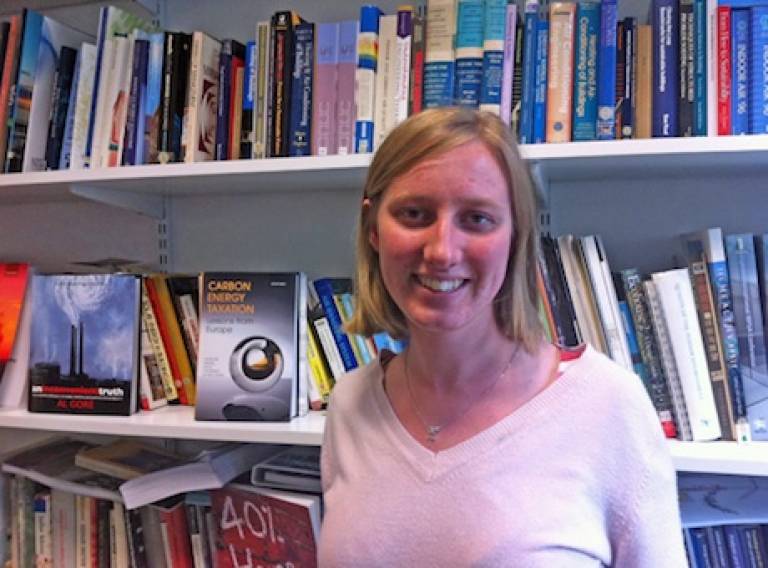UCL-Energy PhD student explains how blogging complements her studies
21 June 2012

UCL-Energy PhD student Jenny Love has told the UCL Teaching and Learning Portal about how writing a blog complements her studies and boosts her employability:
"My first experience of blogging was at the Cheltenham Science Festival, which I wrote about for the UCL Events blog. Although several people had suggested that I start my own blog, it wasn’t until our departmental communications assistant asked me more formally that I actually did so. It’s quite a new thing and I’m trying to write one post per month, each time collaborating with a different person in the field of energy – normally from my department.
For my PhD, I’m looking at the effects of home energy efficiency measures on the occupants. When houses have insulation, new heating systems and other energy-saving measures installed, they can end up using more energy afterwards than before. I’m trying to learn about why. However, I don’t blog about my own work – I think enough about my research as it is and it’s nice to do something else! I also like to use blogging as an opportunity to learn about work being done by other people in my department or in the field of energy, working with them to write the article. This allows me to get to know them better as I learn about their work, and also gives them a means of getting their research into the public domain.
I tend to blog about energy issues which relate to normal people’s lives. So far, I have written about meat, aviation and office energy consumption. I try to take potentially complex issues and explain them simply, so that people can learn something, make their mind up about an issue and take action.
While blogging doesn’t directly contribute to my PhD, it is indirectly helpful in a number of ways. Firstly, in a PhD, you don’t see much output/results for a few years – you’re in it for the long haul. For me, as someone who wants to make a difference in the world in terms of climate change and social justice, being able to post something every month is a way of getting useful knowledge onto the internet on regular occasions in the meantime. While academics don’t understand the answers to big energy questions (which are what my PhD tries to tackle), normal people don’t understand the answers to smaller ones and that’s what I attempt to address through my blog.
The second benefit is more about complementing my PhD work and keeping up with the wider field of energy. I think in terms of getting a job after my PhD this is going to be very important. We’re encouraged to be interdisciplinary in my department and I think this is good as the field needs interdisciplinary people who understand what other people do!
Thirdly, blogging brings a moral aspect into what could otherwise be purely academic. I’d love to see more people in academia making statements like, “Given these facts, you should do this.” My supervisor is great at influencing policy but I find the blog a nice, direct way of offering suggestions on how people might like to change their behaviour.
Other PhD students’ blogs I have read make me care about their research, since a blog can bring a personal side to things, for example through revealing the researcher's hopes and fears about solving a particular problem – so in terms of engaging others in what you’re doing, I think a blog can be very effective. It can also give you space to reflect on your work and think, “What have I learned this month?”
 Close
Close

